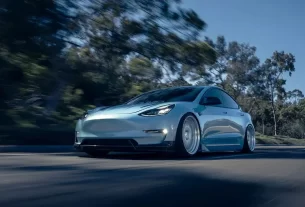
Financial Implications of Space Exploration and Colonization
With rapidly declining launch costs, more businesses are exploring space. Some ventures, like Amazon founder Jeff Bezos’ Starship rocket and satellites, aim to revolutionize space tourism, while others hope to mine asteroids for materials.
These and other space activities can bring significant economic gains if conducted effectively, but their results won’t materialise instantly.
Economic Benefits
Although some critics may point out the vanity of space travel for ultra-wealthy individuals like Jeff Bezos and Richard Branson, or potential economic benefits provided by satellites through global navigation systems or remote sensing data collection, the vast majority of space exploration provides significant societal benefits (1).
Space-to-Earth economy will continue to flourish with lower launch costs and new opportunities opening up as technology progresses and advances. Medical companies could one day use space facilities to manufacture organ transplants or drugs targeted against cancer cells; and solar factories on Mars or Moon can send energy back down, revolutionizing our energy landscape.
Harnessing these and other emerging opportunities requires substantial investments. How can humanity ensure that investments in space exploration and colonization contribute to sustainable economic growth in an age of secular stagnation? The final two articles in this Special Feature address this question.
Environmental Benefits
As space exploration evolved from Cold War concerns to practical applications of our knowledge, governments invested in research and development to generate jobs, keep society running, and keep economies healthy.
Space exploration can be costly; even the least-expensive rocket launch often costs more than many people make in their entire lifetimes. While excessive regulation may stifle this industry, offering incentives to potential private investors and creating jobs for the vast number of people working to bring you one step closer to spacewalk or Mars landing is essential to its continued development and progress.
Future space colonists face an enormous challenge when it comes to resupplying their habitat from Earth, although lunar or martian colonies might be closer. Sustainable agriculture in space could help address this issue.
Human Health Benefits
Space exploration and colonization may seem costly to many critics; however, space advocates point out that investing in this activity will pay dividends in many forms. Not only will space-related businesses generate highly skilled jobs with practical applications for technology advancements that have space-related applications; they also expand public funding available to solve world problems.
Space travel can take its toll, yet the technology available to astronauts to survive long-duration missions is rapidly progressing. Alongside solar power satellites and asteroid mining equipment, scientists are also innovating human survival technologies such as radiation shielding, biomedical engineering, alternative energy sources, 3D printing and low gravity manufacturing that may help prolong space missions.
Falling launch costs have opened the door for incredible societal benefits in orbit, such as improved broadband infrastructure and Earth observation capabilities. Medical companies could utilize space as an incubator to grow organs for transplant patients or develop cancer-targeted drugs which save lives here on Earth, while solar manufacturers use orbit to deliver affordable electricity to Earth.
Social Benefits
Many articles in this Special Feature highlight the numerous advantages associated with space exploration, from job creation to technology spinoffs. Furthermore, research and innovation sparked by space activities can boost economic growth on Earth – an especially helpful boon for high-income countries with stagnating economic growth or stagnation.
Most Americans remain strong supporters of NASA’s pioneering role in space exploration, with little variation across gender, education and generational groups. Furthermore, people increasingly believe that private companies possessing capabilities necessary for space exploration can develop these capacities quickly enough and colonize outer space effectively.
Elon Musk’s SpaceX and Richard Branson’s Virgin Galactic have both seen a rapid expansion of commercial rockets and spacecraft, prompting an incredible boom in space travel – including by billionaire Elon Musk’s SpaceX and Richard Branson’s Virgin Galactic. If managed well, this new era may produce unprecedented economic development and prosperity – provided informed policy-making decisions and international cooperation are applied responsibly; otherwise the benefits of space exploration might quickly dissipate due to billionaires’ egos or private interests who seek control; otherwise benefits of space travel will likely evaporate altogether.








